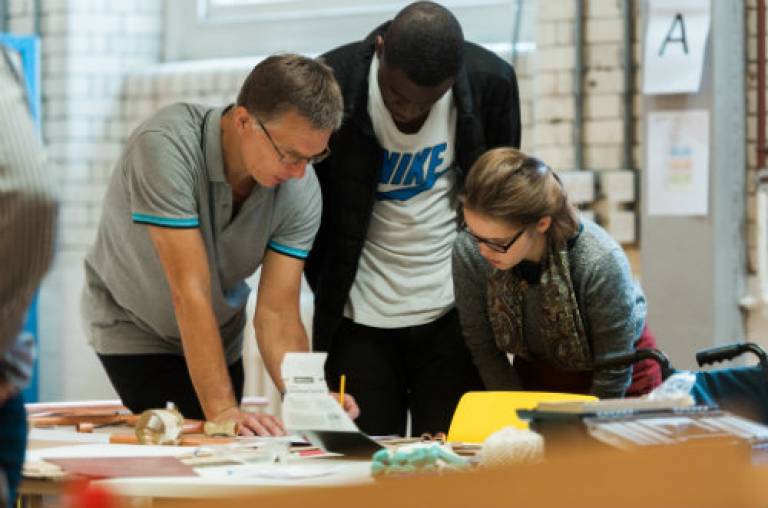Revitalising your peer observation of teaching
26 August 2015
You can learn inspiring new approaches from colleagues and opening a dialogue with peers will help you to think about issues in fresh ways.

Why just watch your peers teaching and tick a few boxes? Why not try new ways to engage in constructive discussions with colleagues about enhancing student learning and the wider student experience in your subject?
Here are two options you might want to try:
Option A: Collaborative enhancement of a specific area of practice
Colleagues work in twos, threes or small groups (same subject OR interdisciplinary clusters)
1. Identify an area for development for the academic year; for example, assessment methods; feedback to students; e-learning materials and resources; flipped lectures; inclusive teaching for diverse groups; research-based education. See the UCL Teaching and Learning Portal for more examples.
2. Support each other by:
- visiting each other’s teaching sessions, and/or
- studying course design: face to face session plans; modules; programmes of study; the design of online learning activities, and/or
- reviewing a wider area of practice for development.
3. Agree on your approaches to enhancement.
4. Try out the new approaches and then get together to review them.
5. Write a very brief account (50-150 words) of what you have done, of how practices have developed and of what impact this has had on student learning and engagement and send it to colleagues so they can try it.
Option B: Pair-based teaching observation
1. Identify with a colleague one or more aspects of your face-to-face teaching which you would like feedback on. You are encouraged to select a new partner for the Peer Dialogue each academic year, so that you can draw on and contribute to the expertise of diverse colleagues.
2. Plan times to visit each other’s teaching sessions.
3. Spend time on preparation before the session. It will be very helpful if you understand the context of each other’s teaching and the aim and content of the particular session.
4. When observing, make notes on what you will feed back to your colleague and on what you can apply to your own teaching/course design.
5. Engage in a constructive follow-up discussion, exploring how your practice can be mutually enhanced.
6. Write a brief joint report (50-150 words) summarising any changes you plan following the peer dialogue, focusing particularly on suggestions of benefit to others in the department.
After you’ve completed Option A or B, why not:
- Present and discuss your account of peer dialogue at your appraisal
- Present your enhancement work to your departmental teaching committee
- Share with your departmental teaching committee any generic issues arising, for example suggestions for changes to the use of space or of technology
- Develop a case study for the UCL Teaching and Learning Portal by emailing connectedcurriculum@ucl.ac.uk
- Lead a UCL Arena exchange seminar to share your developments with colleagues beyond your Faculty
- Discuss possibilities with the UCL Arena team, email: arena@ucl.ac.uk
More information:
 Close
Close

